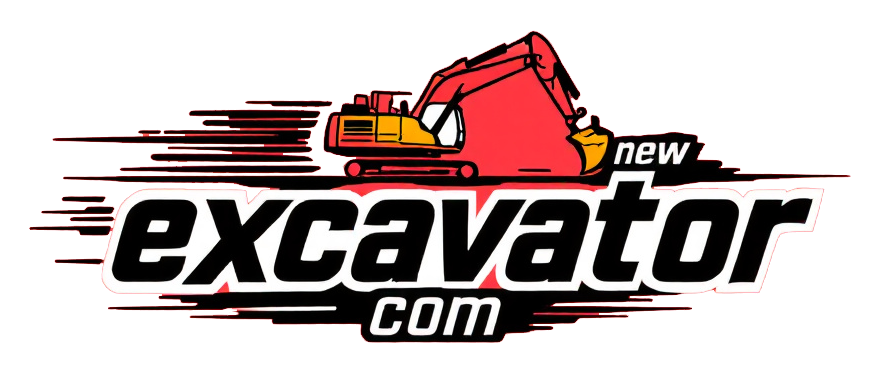
What is a small excavator?
A mini or compact excavator is a smaller variant of a regular excavator. These weigh between 1 and 10 tons each, so they are light and mobile but haven’t lost too much sound.
Differences Between Mini and Standard Excavators
- Space: If you are working on large projects, then going with a traditional excavator will be perfect for you.
On the other hand, mini excavators are most useful in smaller and tighter environments, such as housing backyards or urban areas.
- Weight: Mini excavators weigh less and are easier to transport.
- Price: They are cheaper to rent, buy, and service than full-sized plungers.
Uses for Mini Excavators
- Landscaping projects like grading or digging
- Putting in pools, yards, or irrigation systems
- Minor construction projects
- Start the demolition of smaller structures.
- For plumbing or electrical work, compact trenching duties
Types of Mini Excavators
There are various sizes of mini excavators, each with its own suited application.
Common Sizes
1-Ton Mini Excavators:
- Slim, lightweight, compact; ideal for ultra-tight areas
- Created for jobs such as tree planting, digging small ditches, or working indoors
3-Ton Mini Excavators:
- Adaptable for most landscaping and small building tasks
- More power without the bulk
5-Ton Mini Excavators:
- How much is a small excavator with a 5-ton operation capacity? The weight-lifting capacity of these models can range from 1,000 to 2,000 lbs, depending on specifications.
- Best for mid-range work that demands power, reach, and agility
Choosing the Right Size
Consider the space available on the site (and how much you need to compact), the weight of the material to be lifted, and the depth of digging required when determining the correct size for your projects.
Mini Excavator features and specifications
Mini Excavators: Not everyone is the same.
Some of the features to keep in mind are:
Engine Type
- Diesel vs. Petrol
- The main reason why mini excavators operate with diesel engines is because of their torque and fuel efficiency.
- There are also petrol-driven options in small units, better suited for certain indoor applications.
Lift Capacity
- The lift capacity for mini excavators depends on size. While smaller models can pick up several hundred pounds, select mini excavators can lift more than 2,000 pounds.
Digging Depth and Reach
- How Deep Can a Mini Excavator Dig? Mini excavators typically dig 5–15 feet deep, depending on the specific model. For projects with deeper excavations (larger trenches), you’ll need to consult the model’s reach specs.
GPS Technology
- Current mini excavators also feature GPS and telematics systems that allow you to track machine performance and location in real-time. This is especially useful for contractors running more than one job site.
Can You Make Money with a Mini Excavator?
Absolutely! But if you use it creatively, a mini excavator can generate income.
Business Opportunities
- Excavation Services: Provide local homeowners or businesses with trenching, grading, and light demolition services.
- Landscaping Contracting: Mini excavators are the need of the hour for landscape design, tree planting, and yard beautification.
- Equipment Rentals: Renting out your excavator to other contractors or DIY homeowners is an easy revenue stream.
Pros and Cons:
Pros:
- High demand for multi-purpose machines
- Just-in-time transport and storage
Cons:
- Requires regular maintenance
- It might require obtaining further working licenses in certain areas
Advantages of the Mini Excavator
Undecided on whether or not a mini excavator is right for you?
Here’s why they’re game-changing:
Versatility
- Versatile Tools Across Different Industries
- Augers and hammers make them more functional.
Cost Effectiveness
- Inexpensive about other equipment
- For low operation costs for smaller projects
Maneuverability:
- Perfect for narrow and awkward spaces
Choose the Right Small Excavators for Your Job
Choosing your mini excavator isn’t a trivial task—it requires some honed consideration.
Key Factors
- Size, weight, and capacity needed for your projects
- Fuel efficiency and engine type
- Manufacturer’s warranty and support
- Price ranges for new and used models
Frequently Asked Questions About Small Excavators
1. What is the difference between a digger and an excavator?
They are technically the same, with “digger” being a colloquial term for “excavator.”
2. Can a mini excavator crack concrete?
Yes, but with the right apparatuses, such as hydraulic breakers.
3. Are mini excavators safe?
Mini excavators are remarkably safe because they are used and trained appropriately.
Safety Tips for Mini Excavators
The most important thing to note while operating heavy machinery is to stay safe.
- Pass training and get certified.
- Check the equipment for safety before using it.
- Be aware of hazards in the area, such as uneven ground or electrical lines.
- Use proper PPE (personal protective gear).
Conclusion
For anyone looking to improve efficiency, versatility, and profitability, mini excavators unlock endless possibilities.
Whether you’re a contractor looking to expand your capabilities or a homeowner undertaking a major backyard makeover, a mini excavator is right for you.
Start exploring mini excavator options today and get your hands dirty with a machine that delivers big results in a small package.
